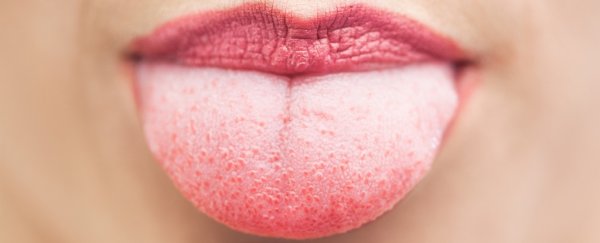Everybody knows what an 'acquired taste' is - figuratively speaking. But what about scientifically speaking: what is an acquired taste?
As in, what goes on inside your body to make your mouth and brain actually enjoy the flavour of a food you once wanted to spit out? Scientists think they've now cracked this puzzle, and it could be the key to making healthy foods taste better for everybody (not just kids who hate vegetables).
"By changing your diet, you might be able to change your flavour experience of foods that at one point tasted nasty to you," explains food scientist Cordelia A. Running from Purdue University.
While we might often think of saliva as something that helps us swallow food, it's no simple mouth lubricant.
Roughly 99.5 percent of human saliva is water, but the rest is an important chemical mixture of compounds that help to break food down and protect our teeth – and even to taste food itself. This last part is key here.
Proteins released by our salivary glands are thought to bind to flavour compounds in food, and also to taste receptor cells in your mouth, which is why Running calls the fluid the "chemical media of the mouth".
The thing is, those proteins aren't static. Previous research with rats demonstrated that when the animals were fed a diet of bitter food, the expression of these flavour proteins in the rodents' saliva was altered.
When the proteins changed, so did the rats' feeding behaviour. They were able to eat more of the bitter food, and it wasn't just a psychological adaptation, but a biochemical one too.
What Running wanted to know was whether the same thing happens in humans. It's an important question, and one which might just seal the fate of broccoli and Brussels sprouts forevermore.
"If we can change the expression of these proteins, maybe we can make the 'bad' flavours like bitterness and astringency weaker," Running explains.
To find out, Running and fellow researchers carried out sensory evaluation tests with 64 volunteers, who had to drink a bitter-tasting chocolate almond milk three times daily for a week, rating the flavour as they went.
Much like the rodents before them, the experiment showed that the volunteers' scores for bitterness and astringency decreased as time went on, but that's not all that was changing.
Changes in the makeup of their saliva were also taking place, with Running observing that the levels of proline-rich proteins – which can bind to the bitter and/or astringent compounds in the milk – was increasing in the participants' saliva.
It's only a hypothesis for now – and the research has not yet been peer-reviewed – but the team suggests these two changes are related.
"We think the body adapts to reduce the negative sensation of these bitter compounds," Running says.
"Saliva modifies flavour, which in turn modifies dietary choices."
It's early days, but the researchers want to find out more about what's going on here, looking at what kinds of particular compounds in food are eliciting changes in our salivary proteins, and investigating how long it takes for our taste buds to adapt to new, disliked tastes.
One day, these proteins might even be isolated and consumed as a separate food additive, to help eaters stick to healthy choices they still don't like the flavour of, researchers suggest.
But even if that doesn't happen, the notion that your saliva can be recruited as an ally to help you eat better is a nice idea, meaning we have more than just our willpower to rely on.
"The idea that maybe not everything about dieting has to be hard," Running told Inside Science.
"Maybe some little piece of your body is actually trying to help you, I think that could really empower some folks."
The findings were presented at the annual meeting of the American Chemical Society in Boston on Monday.
